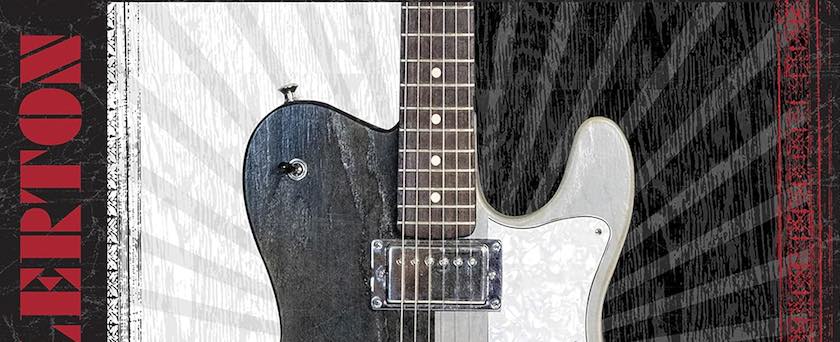Roots Music
Roots Music
Roots music is a category that encompasses a lot of different traditional American genres, such as blues, folk, and gospel. Historically, roots music has its origins in rural communities, with songs passed down orally through generations, preserving local and cultural traditions. This type of music has remained popular in the American consciousness because of its propensity for speaking about and towards the most pressing social conditions and relevant issues of the time. Many contemporary musical artists still draw upon traditional roots music today to express themselves.
What Is Roots Music?
Roots music is a relatively new term to describe a variety of genres found in traditional music. It’s an amalgamation of traditional community-based musical styles that includes genres such as blues, gospel, traditional country, folk, and others. Though the category of roots is a modern term, the genres it includes were an important part of early American culture.
Often thought of as the foundation of American music styles, American roots music is an essential expression of cultural identity. Songs in the roots genre preserve unique histories and cultural traditions. Additionally, the genre acts as a vehicle for speaking out against social injustices and conditions of the time period. Roots music often played a critical voice in some of the most important movements in American history, such as the Civil Rights Movement, the Labor Movement, and the women’s rights movement.
Typical Characteristics of Roots Music
Roots music usually uses acoustic instruments or traditional instruments used within a culture. Some of the most common instruments found in roots music include the harmonica, the fiddle, the banjo, the acoustic guitar, the accordion, and the drums. The tempo of roots music is often slow and relaxed, though not always.
The songs are rooted in the traditional folk music of a particular region. Lyrics often include themes specific to a region and culture. For example, roots music commonly deals with themes related to rural living in the South, such as poverty, religion, and social conditions.
Because roots music typically draws from ordinary people’s experiences, a lot of the lyrics comment on individual and collective struggles of a region. In America, those experiences relate to freedom from oppression and the struggles of social change. For example, the spiritual song “We Shall Overcome” became an anthem of the Civil Rights Movement.
Some of the other themes commonly found in roots music include seeking strategies for social change, empowerment, preserving local traditions and values, and protesting injustices. Current musicians that fall under the roots music category often deal with modern themes such as preserving culture amidst the current era of globalization. Musicians also still use roots music to promote social change.
What Is the History of Roots Music?
American roots music draws on the musical styles of early Americans, including folk music from white European settlers, African-Americans, Mexican-Americans, and Native Americans. As a broad category, roots music refers to several different genres of music particular to early American culture, including blues, gospel, spirituals, jazz, and country. These genres would then pave the way for later genres popular today, like rock and hip-hop.
Blues music first became well-known at the end of the nineteenth century. Drawing from African-American music styles of the rural south, blues music is a distinctive genre. As its popularity spread, blues music was no longer just a regional music style. By the end of World War Two, blues music had adapted to different communities and regions outside of the South, spreading all over the country and creating several subgenres.
Folk music is considered one of the earliest traditions in American music. It’s a type of music that has been passed down orally through generations, usually in rural areas. Because of its community-led style, folk songs have often been considered the music of the common people or the working class. Most of the lyrics deal with struggle and hope. Folk songs also speak about and towards some of the most pressing social conditions of the time.
Folk songs often saw a revival in times of social struggle. During the labor movement, folk music was often a vehicle to speak about the poor conditions the labor force faced. During the Great Depression, musicians also used folk music to speak about the harsh economic conditions that many Americans faced. In particular, after the Great Dust Bowl, many farmers and workers were displaced from their jobs. Folk songs had a way of speaking about the issues that a lot of people at the time had to deal with in their everyday lives.
In the 1960s, the folk genre saw a revival. Bob Dylan wrote folk music that popularized acoustic instruments and folk lyrics. His folk song “Blowin’ in the Wind” was a protest song written during the Vietnam War era. The song’s continued endurance as an anti-war anthem speaks to its strong roots in American musical styles that appeal to a wide range of audiences.
Roots music deeply relates to American historical events. Major events throughout American history have altered the popularity and nature of roots music. After World War Two, the blues genre had a significant dispersal throughout the country due to a large number of African Americans leaving the South. This event led to different subgenres of blues and altered some elements of the traditional genre to better adhere to new communities, like urban blues.
Today, there are many contemporary artists that draw upon inspiration from roots music. Because roots music encompasses such a wide range of genres, there are many artists that fall under this category, as well as other genres. Some of the most notable musicians in recent years include Willie Nelson, the Indigo Girls, Gillian Welch, and Lucinda Williams. These musicians often undertake some of the themes traditionally found in roots music, as well as burgeoning themes related to the twenty-first century.
How Is Roots Music Different From Other Types of Music?
Roots music is distinct from other types of music as it encompasses a variety of genres. However, this category of music is based on a region or culture’s traditional musical styles. Because of this definition, roots music is generally thought of as an authentic music form. The genres in this category were developed before the music industry started making records for public consumption. Much of the songs considered to be roots music were passed down in communities and played a strong role in preserving local traditions, history, and values.
Roots music is a broad category that encompasses an array of different traditional genres. In American roots music, you’ll find genres that have been an important part of early American musical history, such as gospel, blues, and folk. The wide variety of genres and its strong reliance on tradition make roots music an enduring and relevant music form in today’s culture. Many musical artists are drawn to its simplistic instrumental styles, relevant lyrics to the regular person’s lived experiences, and the preservation of traditional musical styles.






